The past year that we've spent living under the COVID–19 pandemic has led people to seek comfort in myriad people, places, and things—including food. As we navigate this peculiar and difficult time, the food we consume has turned into more than just a source of nutrients. It provided people with a sense of familiarity and comfort. Whether it be a traditional family recipe that brings with it a much–needed sense of belonging, as holiday gatherings are replaced by Zoom meetings, or a cup of homemade coffee that helps maintain a sense of normalcy, here are some of the food items and recipes that have brought Penn students comfort over the past year.
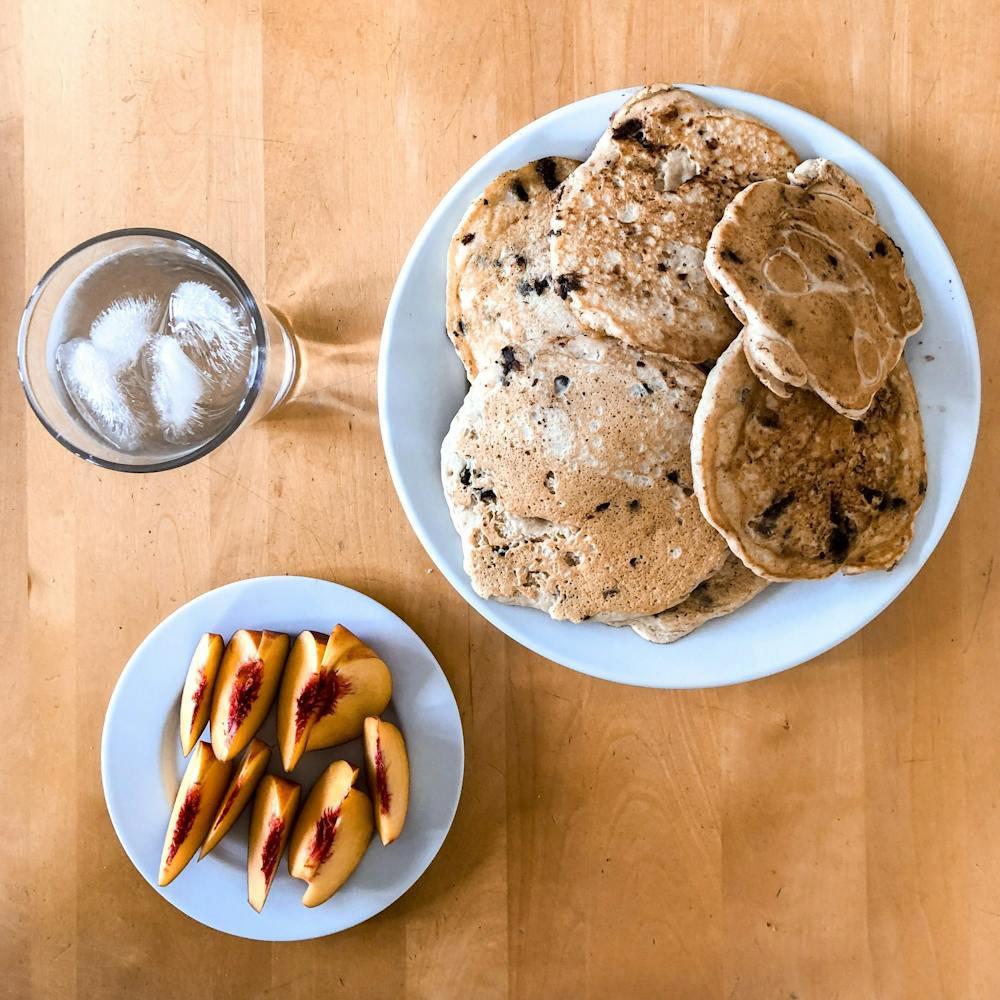
For some, a favorite breakfast gave them a reason to wake up in the morning and the confidence to tackle their day. “During the pandemic, I’ve started to make vegan chocolate chip pancakes,” explains Kylie Cooper (C '22). “It’s a super simple recipe that I like to jazz up with a side of fruit—and sometimes homemade home fries, too! Breakfast is my favorite meal, so making these pancakes every now and then is a great way to start the day and gives me time to relax.”
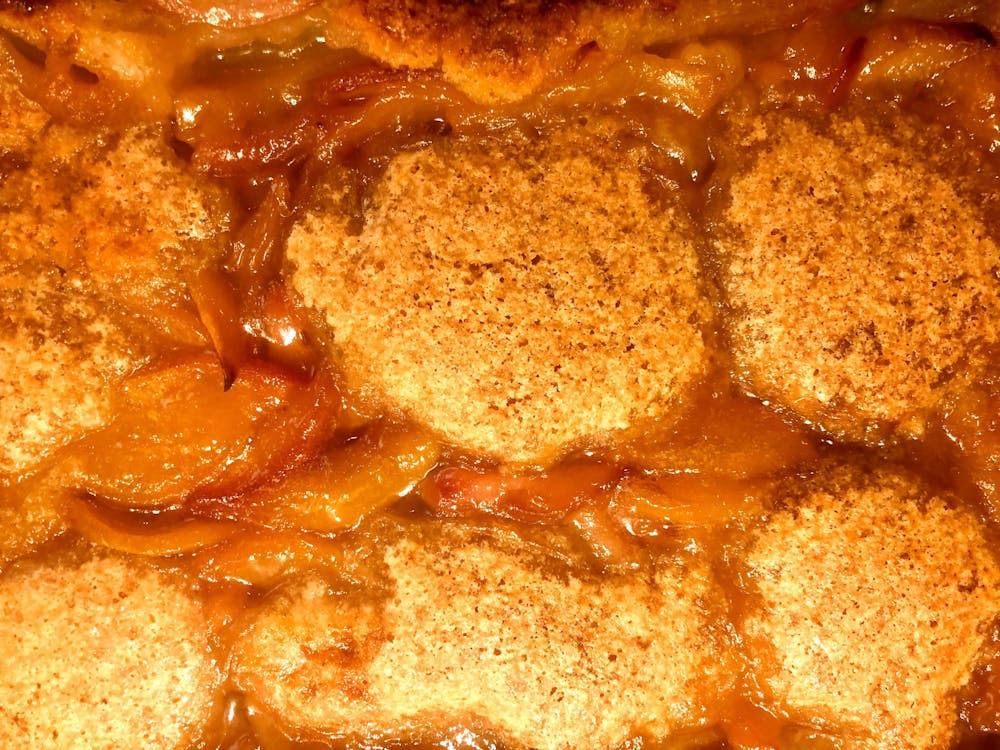
The process of making a recipe from scratch also left some feeling a sense of accomplishment in trying times. For Karin Hananel (C '22), this recipe took the form of a peach cobbler she made from peaches she picked herself. “I’m not super experienced with cobblers, so it was great to see this dessert turn out so well. I felt very cottagecore,” says Karin. “It’s nice to occupy myself with my hands and get away from my thoughts, which is hard to do in quarantine without looking at a screen.”

Lily Stein’s (C ’22) home–cooked meal of choice during quarantine was chicken shawarma. “It was an involved, complicated two-day process (marinating, blanching, refrigerating, cooking, sautéing the chicken), and I loved every step of it,” she describes. “My whole family gathered around and ate it for dinner together, and I remember how accomplished and happy I felt.”
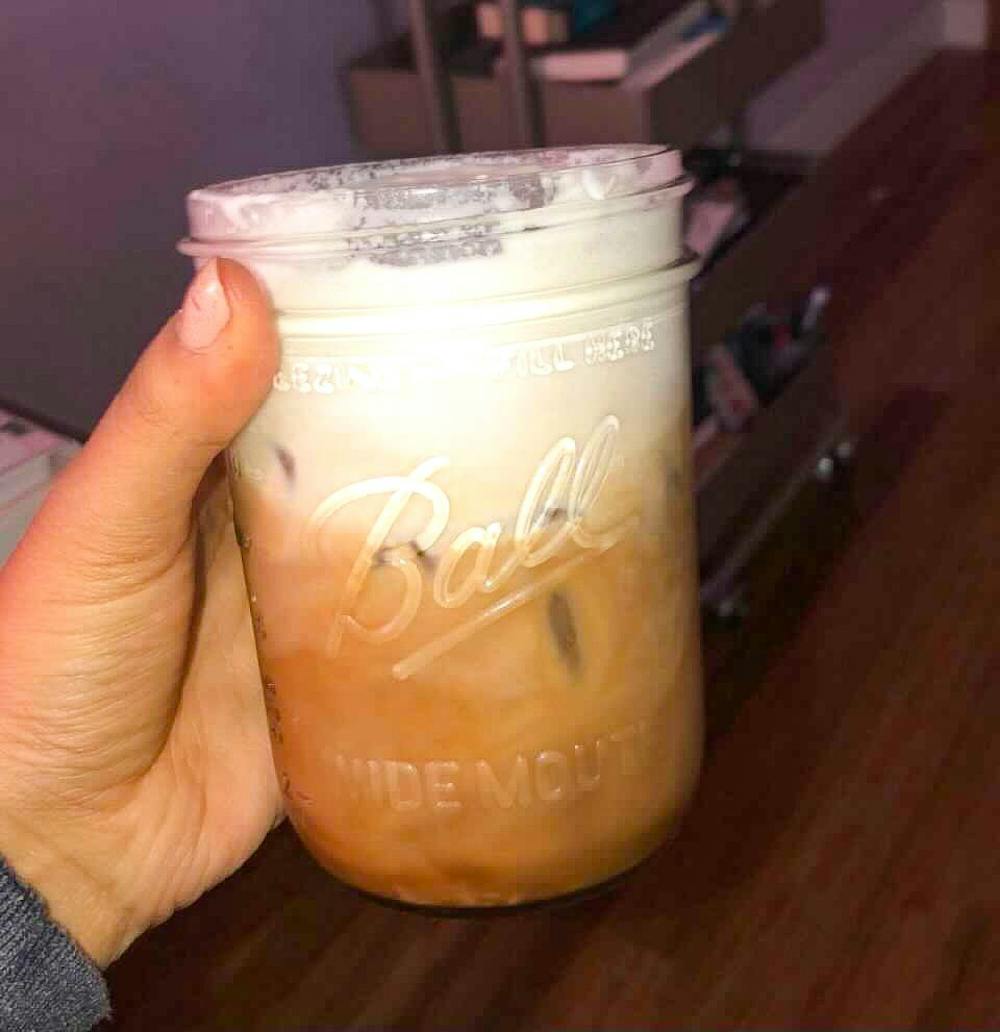
Others used cooking as an opportunity to add something new to their days during the monotony of quarantine. Mehek Boparai (C ’22), a coffee enthusiast, says, “In an effort to curtail my spending and outside excursions, I took up the intense hobby of making cold brew with sweet cold foam every morning after breakfast to give me some semblance of routine.” For Mehek, the experience was “cathartic, relaxing, and always ensured I had something to look forward to so that I didn’t have to frequently check my news app.”
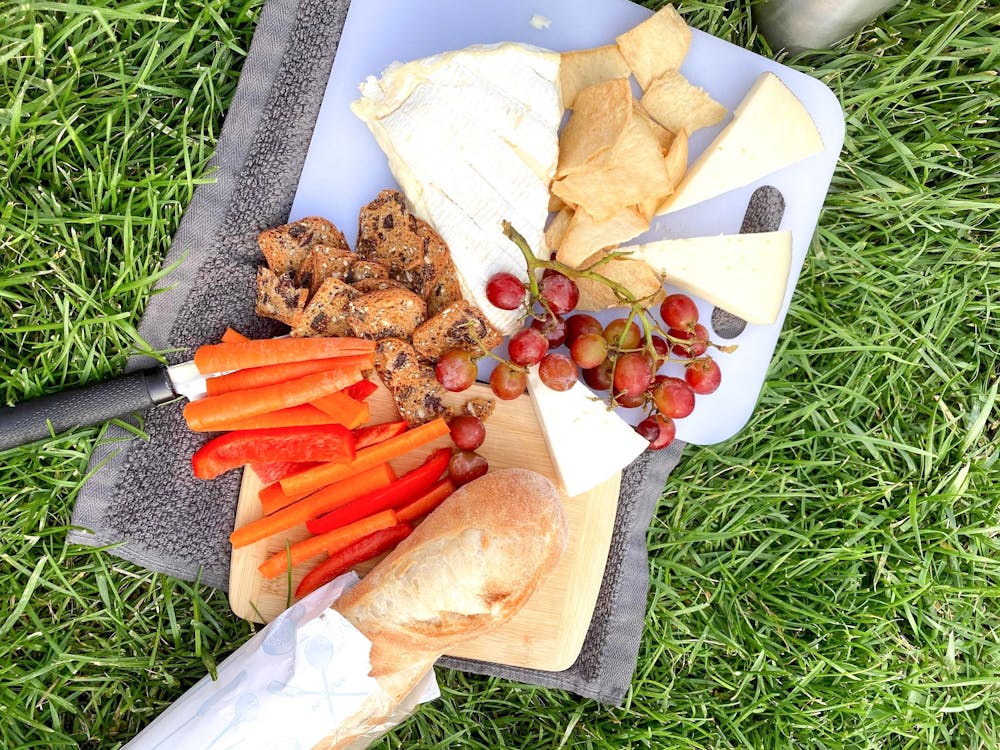
Similarly, Denali Sagner (C ’22) and her roommate “tried to perfect the art of the cheese plate” while spending days inside. As Denali says, cheese plates are “a really nice way to turn food into a communal activity and to find a new creative outlet. And, when it was nice out, we even got to move our cheese plate artistry to Cira Green and people–watch from six feet away!”
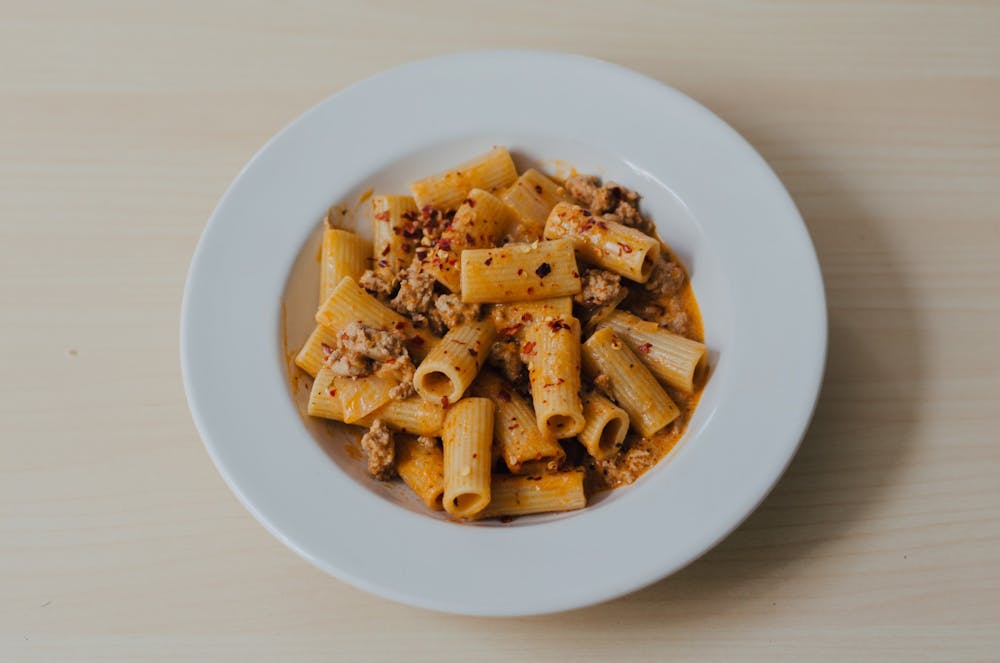
“This is rigatoni pasta with vodka sauce, made with tomato paste, vodka, heavy cream, and ground turkey,” explains Sophia Dai (C ’21) of her quarantine culinary venture. “After spending a lot of time on TikTok in quarantine and getting inspired by Gigi Hadid’s viral penne alla vodka pasta recipe, I decided to give it a go and try it out myself. Now, it’s become one of my comfort recipes: incredibly simple and delicious every time.”
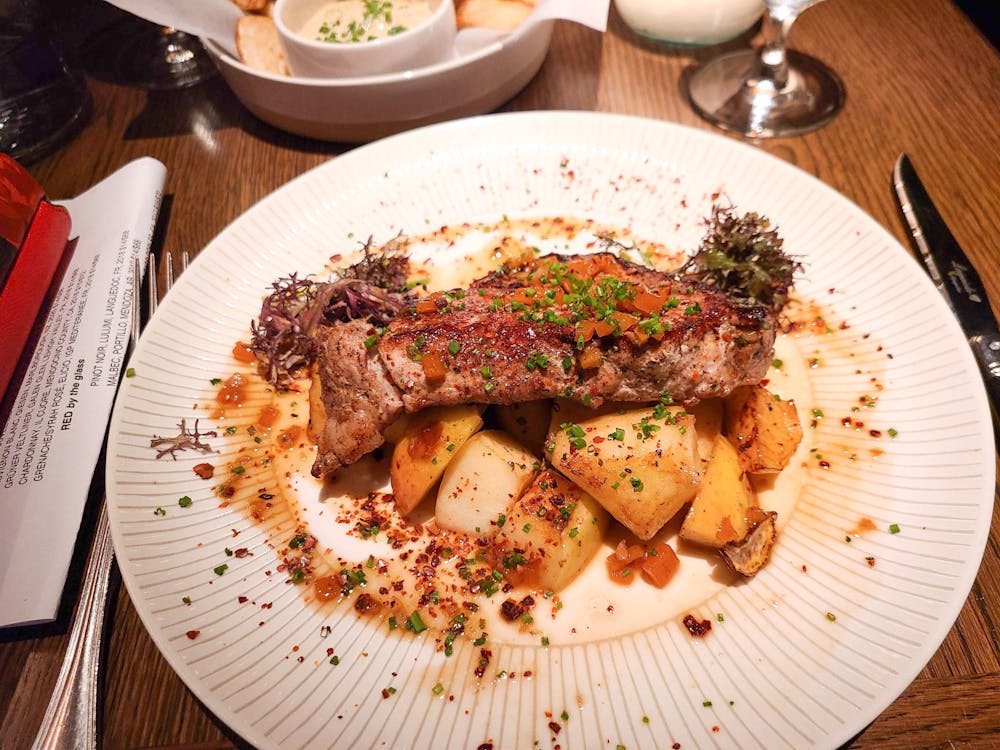
About an unusual celebratory dinner, Samantha Turner (C ’23) says, “It was the first nice dine–in restaurant experience that I had, and it marked almost one year since quarantine started. This was to celebrate [my] one year anniversary with my boyfriend.”

In a COVID–19 world, food can represent family and tradition. Sophie Huang (C ’24) practiced folding dumplings with her parents over quarantine. “My dad would knead and cut the dough, my mom would stuff the skins with pork and vegetable filling, and I would fold them into little dumplings,” she says.
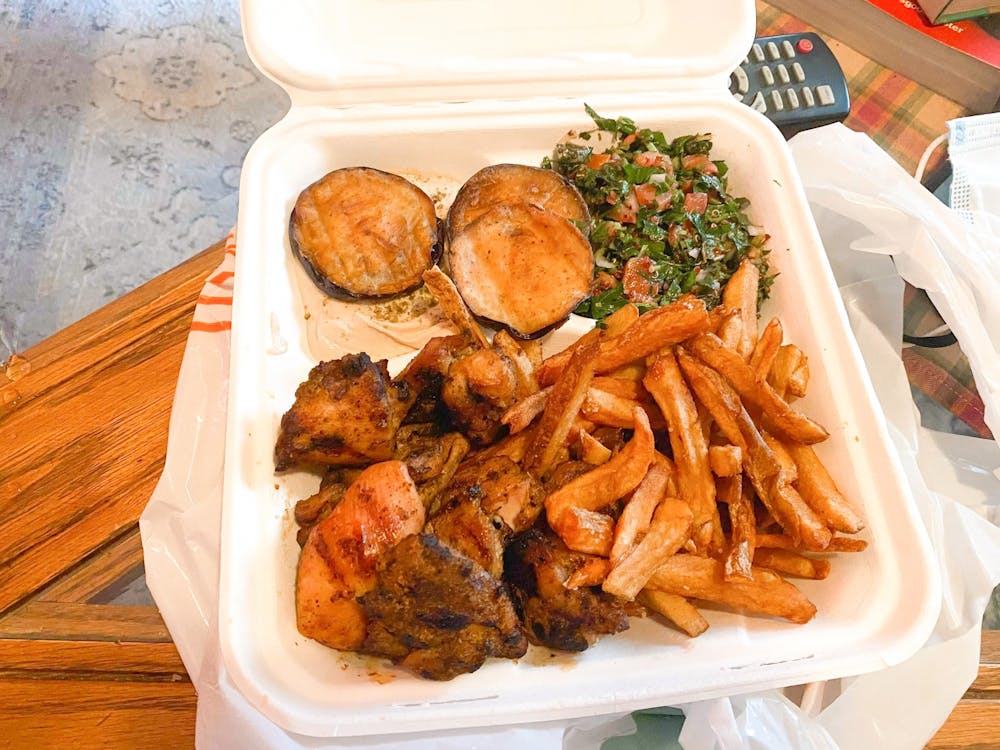
“I don’t really cook, so this is my regular order at Hummus Grill,” says Caylen David (C ’23). “The main reason it’s important to me is because it reminds me of food I eat with my family, so it’s nice to have that connection in a time where I can’t really visit with them [in person].”
